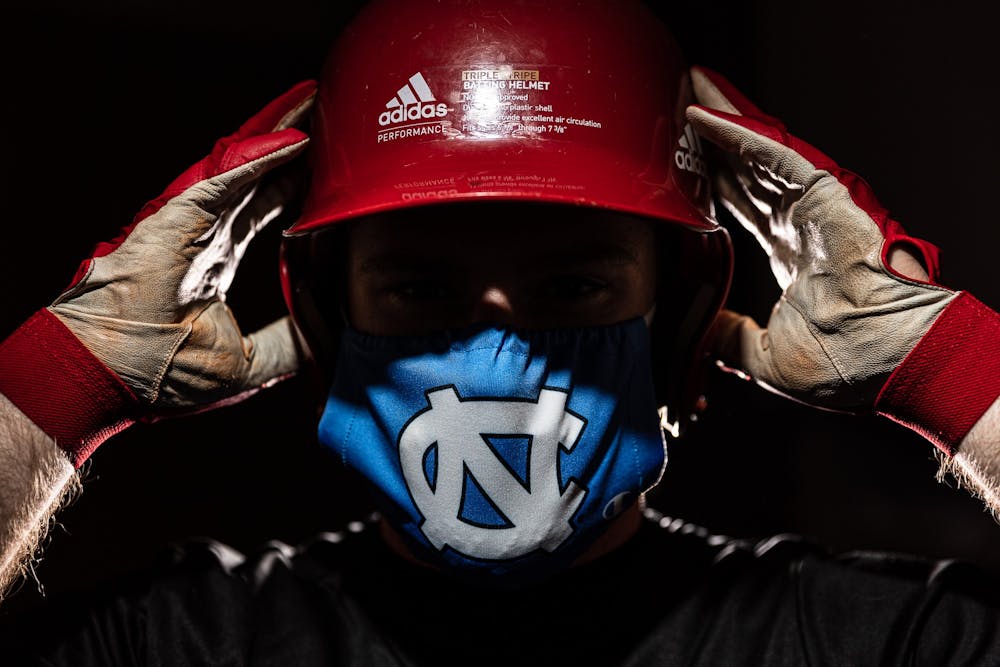Osborne said there are four elements to proving negligence in a lawsuit: duty, a breach of duty, causation and damage.
“With COVID, the breach and the causation are pretty hard,” Osborne said. “It’s not what the average person would do, it's what a reasonably prudent person would do. So a reasonably prudent person is someone who’s more careful. But with our athletic department, I think our athletic department is doing everything that they know to do based on science.”
On the North Carolina football team, there are over 100 players listed on the 2020 roster. Adding other fall sports — such as field hockey, men’s and women’s soccer and volleyball — that number more than doubles.
Athletes who have contracted COVID-19 have received treatments with no out-of-pocket cost, UNC athletics said in a statement to The Daily Tar Heel.
“We have treated COVID-19 testing for student-athletes, and any follow-ups including lab tests and x-rays, the same way that we have other injuries and ailments," a UNC spokesperson said over email. "Student-athletes have had no out-of-pocket expenses, no matter where they might have contracted COVID-19.”
Athletes on campus
Since UNC athletics announced 37 positive tests among players, coaches and athletics staff in July, the University has not released coronavirus testing data in athletics separately from the university community. UNC has since sent the majority of students living on campus home, but continued athletic competition for most fall sports.
With most students left on campus being athletes, students with WiFi issues and students in ROTC, Karen Weaver, a former Division 1 and 3 coach and athletic director, said this could trend into athletes being monitored more heavily in the future.
“It’s a very complex decision that then leads schools like North Carolina in the situation where they’re, ‘Well, everybody’s left campus but the athletes, right, and it makes more sense to put all the athletes in one place so we can keep an eye on them,’” Weaver, a current associate professor of sports business at Drexel University, said.
The spokesperson for UNC Athletics said the decision to keep athletes who live on campus in residence halls was made so they could fulfill team responsibilities.
“Similar to past years, the University has student-athletes who live on and off campus," the spokesperson said in an email. "Student-athletes who live on campus were allowed to stay because they have in-person responsibilities with their teams.”
While seasons for most fall sports are still ongoing, the NCAA allowed college athletes to opt out of the fall 2020 season and retain eligibility. UNC football, for example, had four players opt out of the season due to COVID-19-related concerns.
To get the day's news and headlines in your inbox each morning, sign up for our email newsletters.
Still, Jackson said the competitive environment within certain teams and athletic departments could lead to some athletes feeling uncomfortable opting out of the season.
“In some places, there will be pressure to play, and even if it’s not explicitly stated, it’s made clear in a variety of kinds of signals and subtle, not so subtle, ways. It’s my hope that the vast majority of coaches and teams and athletic departments took that seriously,” Jackson said.
Despite the potential pressure Jackson described that could come from some teams and athletics departments across the country, the spokesperson for UNC athletics told the DTH it has made it clear to athletes that they will retain their scholarship should they choose to opt out.
“We have reinforced to all student-athletes that if they want to opt out, their scholarship is protected," the spokesperson said. "If a student-athlete wants to opt out, we ask that he or she contact their coach and discuss their concerns. We then ask that they fill out the attached Student-Athlete COVID-19 Opt Out form, which includes guidelines.”
The Opt Out form lists a number of agreements for athletes who choose to opt out of competition, including discontinued team meals, snacks and per diem and receiving no team issued gear or equipment. The agreement form says athletes can still receive academic support services, go to sports medicine and CAPS and receive the full financial aid promised to them in their scholarships.
UNC’s student-athlete handbook promises two years of health coverage for athletes that sustained an injury directly related to university-sanctioned competition.
“We are hopeful that there will not be any long-term complications. Should that happen, those complications likely would be covered, but we look at all situations on a case-by-case basis,” the UNC Athletics spokesperson said in an email.
If an athlete were to make a negligence claim against UNC or another university while suffering long-term complications from COVID-19, Osborne said it is unlikely that they would see success in the court system, barring obvious breach of duty or causation of damages from a university standpoint.
The amateurism model that the NCAA has created, Jackson said, has forced a situation in which athletes don’t have “a seat at the table.” While TV revenue from college football itself was estimated to bring in $804 million in 2019 alone, college athletes are still considered amateur "student-athletes" by the NCAA and the schools under its jurisdiction.
“It relates to the broader power dynamic,” Jackson said. “That, ‘you athletes should trust the school has your best interest and therefore you don’t need a seat at the table and because you’re not employees you’re not even allowed to.’”
@zachycrain
@DTHSports | sports@dailytarheel.com




